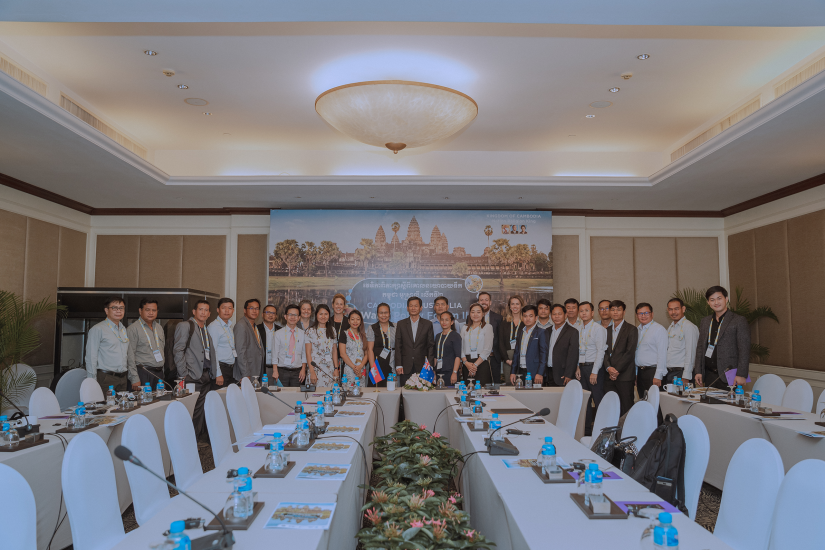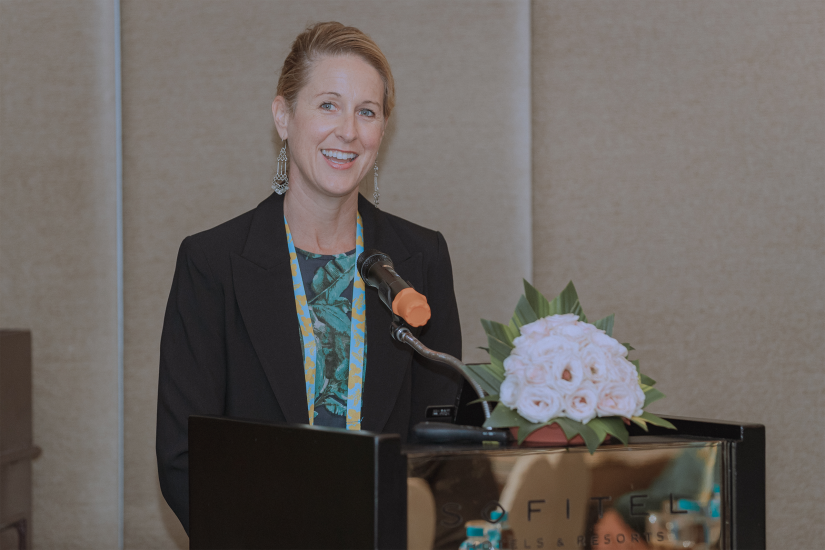Representatives from the Cambodian and Australian water sectors are sharing information, governance models and experiences to create meaningful change.

Women and men have different experiences, knowledge and needs in water, sanitation and hygiene (WASH), underlining the importance of gender equality and inclusion in the water sector.
That’s the message delivered by Melita Grant during a session devoted to women in water at the second Cambodia–Australia Water Policy Forum, a three-day online gathering that drew water policy representatives from the Cambodian and Australian water sectors. The forum was organised by 3i and the Cambodian Water Association with the Australian Water Association.
Melita, Program lead – International development at The Institute for Sustainable Futures (ISF), presented research that explores roles that women play in rural WASH enterprises in Cambodia, and delivered recommendations for developing greater gender equality in the water sector.
We've found through research that the sustainability of water management programs is enhanced when they're designed to be inclusive.
– Melita Grant, ISF
“We need to look into the differences between water users and knowledge holders, and draw on and cater for these differences. There's a huge breadth of knowledge in our communities, so let's tap into that diversity,” Melita said.
“We've found through our research that the sustainability of water management programs is enhanced when they're designed to be inclusive. This means that water management projects have a higher likelihood of being sustained and not falling over in a few years.”
This is important because women are deeply involved throughout the water sector, though often excluded from a range of forums and processes.
“Our research has found that women play many roles in the WASH system, they’re piped water entrepreneurs, latrine business owners, masons, sanitation, marketing, sales agents, WASH product retailers — they're also leading at the commune level, district level, provincial level, national level in ministries related to water.”
Melita showcased a tool to support the water sector globally to increase inclusion within the workforce, including a database of activities implemented globally related to inclusion including gender, disability, sexual and gender minorities, Indigenous peoples, and other factors related to inclusion.
Her research pointed to areas with potential to boost gender equality including building networks, involving the men in women’s lives and their families in training programs and enterprises, and creating leadership and training opportunities.

Melita Grant, ISF
“That means tailoring training to their needs” Melita pointed out. “And that might be accommodating family responsibilities, issues around transportation to training, venues and concerns around leaving the home for long periods of time and social stigma around travel.”
She also explained the importance of accessible finance (low interest loans for water infrastructure and businesses), and monitoring and evaluation that encompasses both quantitative and qualitative data.
There is meaningful opportunity in the Australian and Cambodian water sectors to enhance gender equality, Melita believes.
“There is a lot of interest in supporting gender equality and inclusion as a result of a number of factors, such as the United Nations Sustainable Development Goals, which call on all actors to consider the relationship between the goals, and in this case, Goal 5 [Gender Equality] and how it needs to be connected to all the other parts of creating sustainable futures,” she said.
“Also, there is the influence of donors such as DFAT and other donors and multilaterals who are resourcing and supporting gender equality, disability and social inclusion (GEDSI) in designs, program implementation and monitoring and evaluations.
Melita and fellow International Development colleagues, Professor Juliet Willetts and Avni Kumar have received additional funding to share the results of the research and associated outputs, and tailor the tools to different contexts including in the Pacific, and with the International Water Association.
“We have a lot to share with each other about how to make our water and sanitation sectors more inclusive — and inclusive means the experiences, disciplines, ages and abilities, and ensuring that all those voices are part of making decisions around water management and a part of the institutions that manage water,” Melita said.
more information
Cambodia | Australia Water Policy Forum II (2022) (Program)

